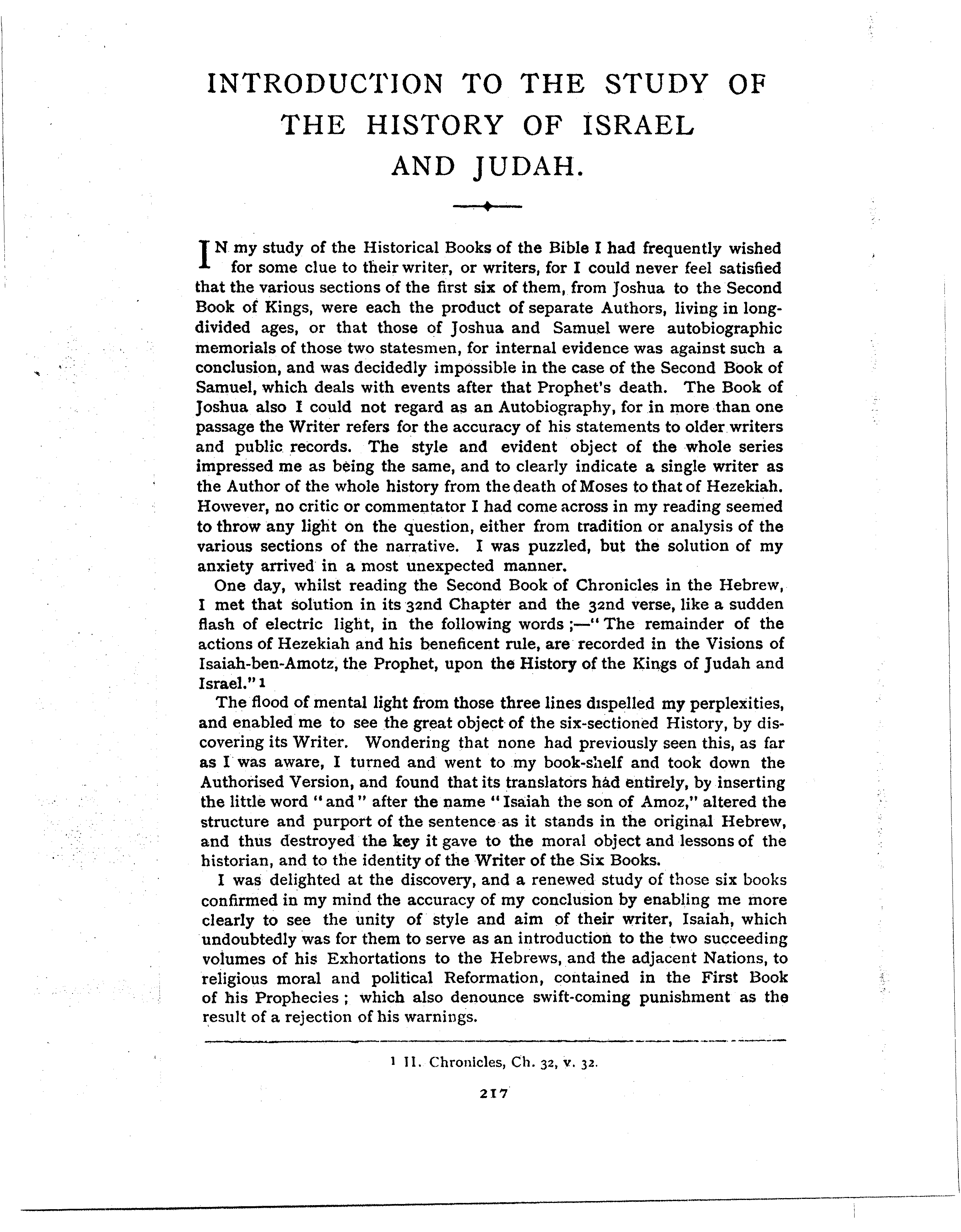Deuteronomy (The Speeches of Moses) - Ferrar Fenton Bible Translation page 217
The Five Books of Moses
that the various sections of the first six of them, from joshua to the Second Book of Kings, were each the product of separate Authors, living in long- divided ages, or that those of joshua and Samuel were autobiographic memorials of those two statesmen, for internal evidence was against such a conclusion, and was decidedly impossible in the case of the Second Book of Samuel, which deals with events after that Prophets death. The Book of joshua also I could not regard as an Autobiography, for in more than one passage the Writer refers for the accuracy of his statements to olderiwriters and public. records. The style and evident object of the whole series impressed me as being the same, and to clearly indicate a single writer as the Author of the whole history from the death of Moses to that of Hezekiah. However, no critic or commentator I had come across in my reading seemed to throw any light on the question, either from tradition or analysis of the various sections of the narrative. I was puzzled, but the solution of my anxiety arrived in a most unexpected manner. One day, whilst reading the Second Book of Chronicles in the Hebrew,
I met that solution in its 32nd Chapter and the 32nd verse, like a sudden The remainder of the actions of Hezekiah and his beneticent rule, are recorded in the Visions of Isaiah-ben·Amotz, the Prophet, upon the History of the Kings of judah and 1 The Hood of mental light from those three lines dispelled my perplexities,
and enabled me to see the great object- of the six-sectioned History, by dis- covering its Writer. Wondering that none had previously seen this, as far as Iwas aware, I turned and went to my book—shelf and took down the Authorised Version, and found that its translators had entirely, by inserting altered the structure and purport of the sentenceas it stands in the original Hebrew, and thus destroyed the key it gave to the moral object and lessons of the historian, and to the identity of the Writer of the Six Books. I was delighted at the discovery, and a renewed study of those six books
confirmed in my mind the accuracy of my conclusion by enabling me more clearly to see the unity of` style and aim of their writer, Isaiah, which undoubtedly was for them to serve as an introduction to the two succeeding volumes of his Exhortations to the I-Iebrews,_and the adjacent Nations, to religious moral and political Reformation, contained in the First Book of his Prophecies; which also denounce swift·coming punishment as the result of a, rejection of his warnings. l ll. Chronicles, Ch. 32, v. gz.
217
